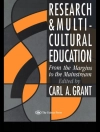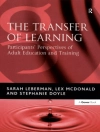Most of the Muslim societies of the world have entered a demographic transition from high to low fertility, and this process is accompanied by an increase in youth vis-à-vis other age groups. Political scientists and historians have debated whether such a “youth bulge” increases the potential for conflict or whether it represents a chance to accumulate wealth and push forward social and technological developments. This book introduces the discussion about youth bulge into social anthropology using Tajikistan, a post-Soviet country that experienced civil war in the 1990s, which is in the middle of such a demographic transition. Sophie Roche develops a social anthropological approach to analyze demographic and political dynamics, and suggests a new way of thinking about social change in youth bulge societies.
Table des matières
List of Maps, Figures and Tables
Foreword: The Construction of Life Phases and Some Facts of Life
Günther Schlee
Acknowledgements
Notes on Transliteration and Usage
Introduction: Youth (Bulge) and Conflict
Chapter 1. Placing the Field Sites in Their Context – A Demographic History
Chapter 2. ‘Why Didn’t You Take a Side?’ –The Emergence of Youth Categories, Institutions and Groups
Chapter 3. ‘Siblings are as Different as the Five Fingers of a Hand’ – Developmental Cycle of Domestic Groups and Siblingship
Chapter 4. ‘The Gift of Youth’ – Workers, Religious Actors and Migrants
Chapter 5. ‘The only Thing in Life that Makes you Feel like a King’ – Marriage as an Indicator of Social and Demographic Changes
Chapter 6. ‘Youth are our Future’ – The State’s Youth Categories Challenged by Youth
Conclusion: The Dynamics of Youth Bulge as a Question of Domestication
Appendix
Glossary of Selected Terms
Bibliography
Index
A propos de l’auteur
Sophie Roche is currently leading the junior research group “The Demographic Turn in the Junction of Cultures” at the Cluster of Excellence “Asia and Europe in a Global Context” at the University of Heidelberg. She worked at the Max Planck Institute for Social Anthropology in Germany and received her Ph D from this University Halle-Wittenberg. She then joined the Zentrum Moderner Orient in Berlin in 2010 with a project on jihad in text and context, an ethnographic approach. She has extensive ethnographic experiences in Tajikistan and in Russia among Migrants for Central Asia.












